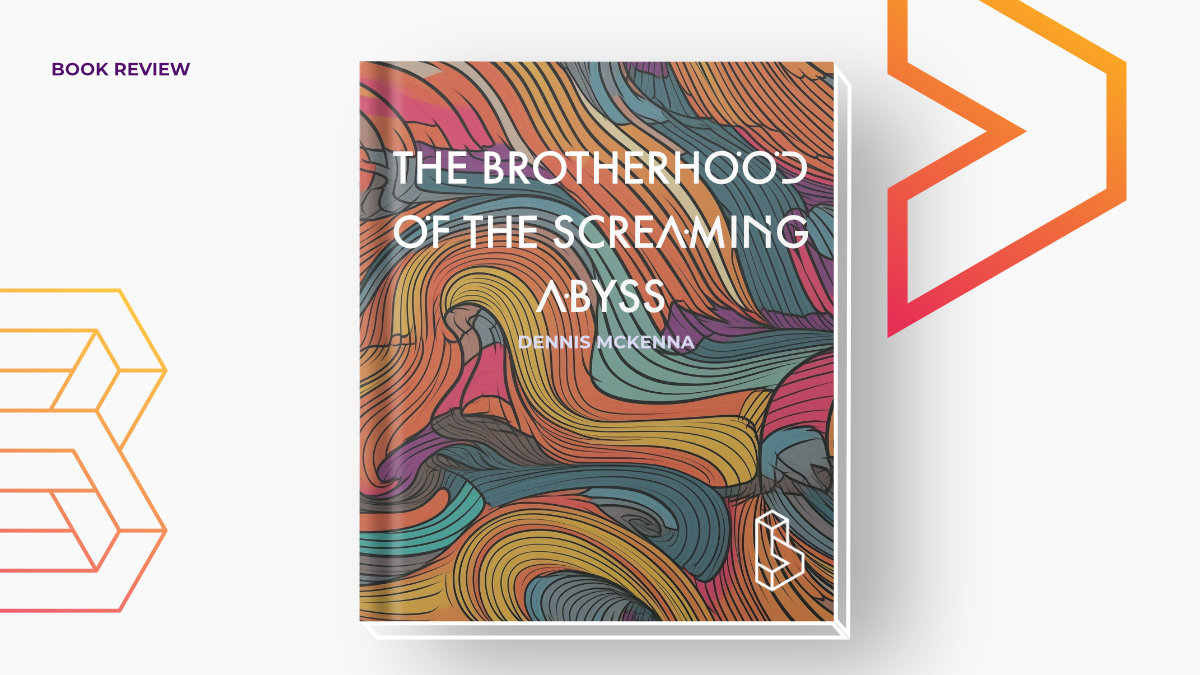The Brotherhood of the Screaming Abyss: My Life with Terence McKenna by Dennis McKenna entails a biographical account of the McKenna brother’s intimate relationship throughout their lifespan. It lays out meticulous details of their childhood, as well as their eye-opening expedition to the Amazon in 1971 that is inextricably associated with the so-called “Experiment at La Chorrera”. A story once told in True Hallucinations by Terence McKenna, this book offers a complementary perspective by Dennis, which retells the story of how their initial search to find exotic hallucinogens rapidly turned into a mind-bending journey.
Publisher Summary
“The Brotherhood of the Screaming Abyss reveals the story of the McKenna brothers’ eye-opening expedition to the Amazon in 1971 for psychedelic research. Once introduced by famed psychedelics advocate Timothy Leary as “one of the most important people on the planet,” radical philosopher Terence McKenna was an iconic legend in the psychedelic community. He died in 2000, but his ideas live on in the writings of author Dennis McKenna. On their Amazonian journey together, the brothers explored the outer limits of psychedelic experience and were haunted ever since by the curious events that overtook them in that primaeval rainforest.”
Summary Review of The Brotherhood of the Screaming Abyss

Author: Alex Criddle is an independent researcher, writer, and editor. He has a Masters in Philosophy where his thesis was on the nature of healing in psychedelic experiences. He’s worked as a researcher at a clinic doing ketamine-assisted psychotherapy and as a psychedelic integration guide. His writing and contact information can be found at https://alexcriddle.com
Many detailed reviews have been written of the first edition of The Brotherhood of the Screaming Abyss, so I won’t spend much time on the book itself since the first edition text is unchanged in this second edition.
This book simply is a detailed story of the lives Terence and Dennis lived, with the bulk of the book being about their childhood growing up together. Dennis spends a significant amount of time describing his family background and all of their personalities. He describes his academic career and the months and days leading up to the death of Terence from brain cancer. The last few chapters deal exclusively with Terence’s struggle with cancer and how the people in his life gathered around him, supported him, and reminisced about the life they lived together.
The new addition to this edition is the last chapter simply titled “Afterword”. Just over ten years have passed since the first edition was published, and McKenna laments just how far away the year 2000 seems, the year Terence died. He speaks of the nonevent that was Y2K, and how many world-shaping events actually occurred around that year, specifically noting just how terrible four days after Terence’s death was, April 7, when Vladamir Putin, “a monster, a soulless autocrat” as McKenna calls him, was made president of Russia. He laments the Russian invasion of Ukraine and the COVID pandemic as two major signs that the world Terence knew is gone.
Dennis suggests that reflecting on the most significant events of the past 22 years is a useful practice because these events are the foundational precursors to the present moment and the future history that will emerge from it. He speaks of several broad categories, although he notes that the actual unfolding of events is interactive and inseparable. The categories he touches on include geopolitics, climate change and natural disasters, social unrest and transformation, scientific discoveries, and technological innovations. Regarding technological innovations, he points out that while there seem to be technological innovations that can make us smarter, there have yet to be any that make us wiser. He believes that the moral and ethical determinants of the paths we choose lie in the human heart and not technological innovation. However, psychedelics, carefully used, might help us discover heart-centred wisdom.
Dennis then briefly looks at vast swaths of psychedelic history from the discovery of LSD to the present day and notes his connections to it. He also discusses the emergent phenomenon of ayahuasca tourism and says he has mixed feelings regarding his own role in the genesis of the phenomenon. It has created many problems for local people, and the economic benefits have rarely been dispersed to the broader community. But, he notes, on the positive side, he thinks ayahuasca tourism signals a shift in global consciousness and an increasing number of spiritual seekers. Substances such as ayahuasca and psychedelic mushrooms are helping people realize that we have to wake up before it is too late, recognizing how imbalanced our relationship with nature has become. Our species is rediscovering the value and benefit of psychedelics which he suggests, if they are properly integrated into the global consciousness, can signal the next phase of the evolution of human consciousness, making us kinder, wiser, and more compassionate.
McKenna then turns to space exploration, noting that in the first edition of the book, he railed against the shortsightedness of the space program in the 1960s, with which he largely still agrees. He suggests the next decade will answer the question of if we have lost the will that produced the vision of the movie 2001: A Space Odyssey. He is encouraged by the renewed interest in commercialising space and creating a permanent human presence in space. He then spends a brief moment discussing potential apocalyptic disasters caused by humans in the near future before summarizing some positive hope-filled technological research.
Dennis ends his afterword by probing his mortality, noting how young his immediate family members died and how old some of his extended relatives lived to be. He knows most of his life is in the past and muses about the role of memory and stories in old age and how they are passed on.

